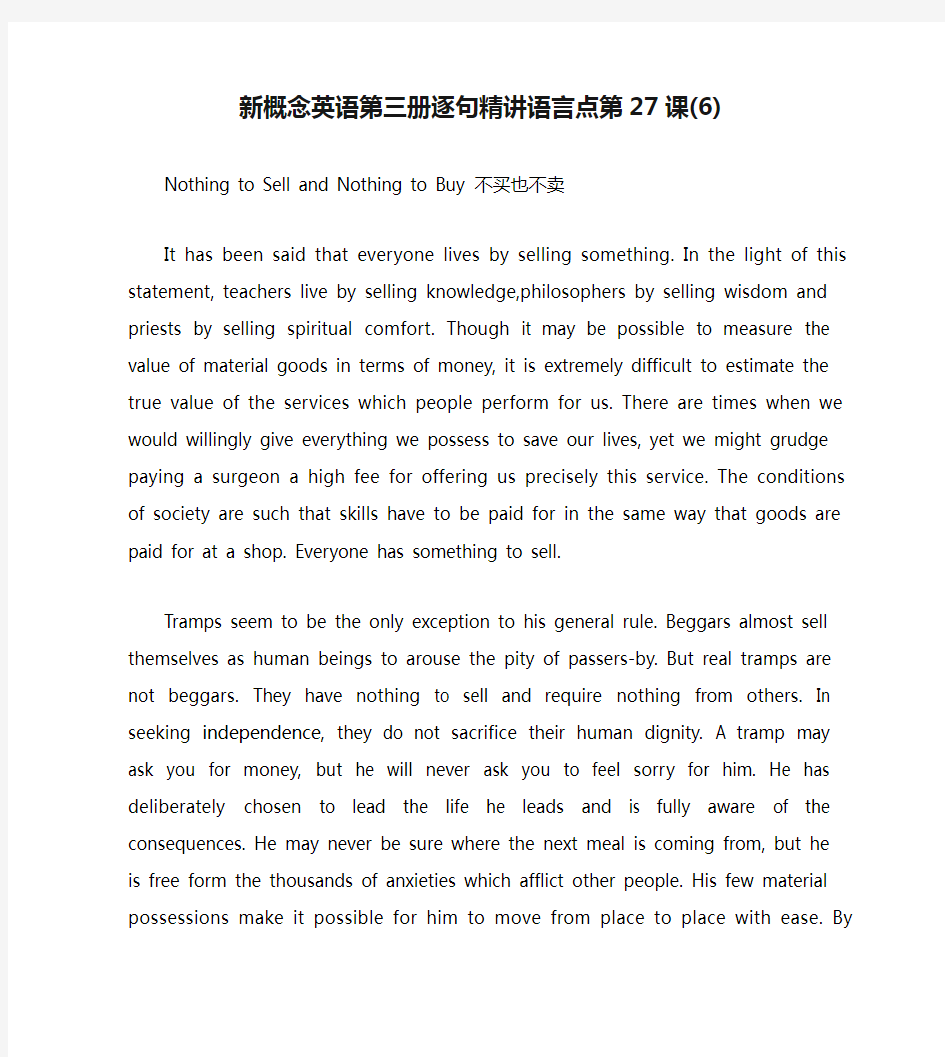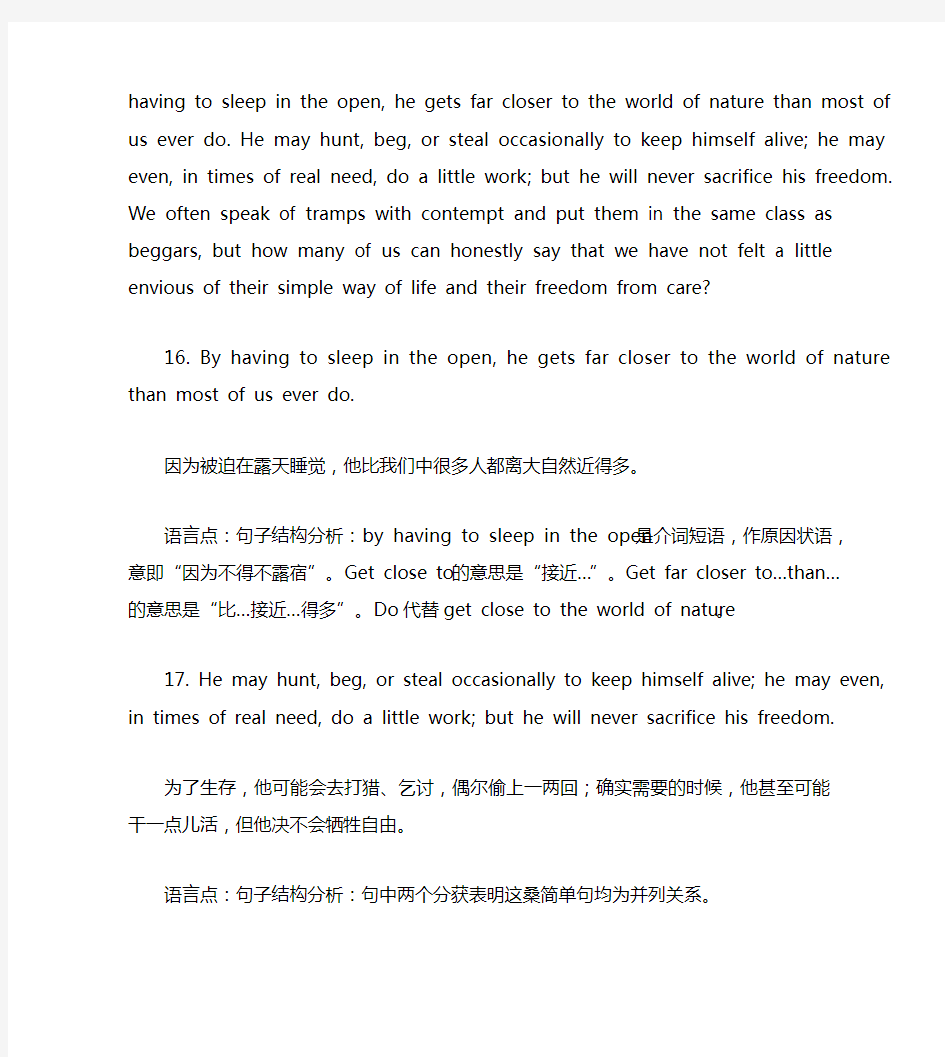

新概念英语第三册逐句精讲语言点第27课(6)
Nothing to Sell and Nothing to Buy 不买也不卖
It has been said that everyone lives by selling something. In the light of this statement, teachers live by selling knowledge,philosophers by selling wisdom and priests by selling spiritual comfort. Though it may be possible to measure the value of material goods in terms of money, it is extremely difficult to estimate the true value of the services which people perform for us. There are times when we would willingly give everything we possess to save our lives, yet we might grudge paying a surgeon a high fee for offering us precisely this service. The conditions of society are such that skills have to be paid for in the same way that goods are paid for at a shop. Everyone has something to sell.
Tramps seem to be the only exception to his general rule. Beggars almost sell themselves as human beings to arouse the pity of passers-by. But real tramps are not beggars. They have nothing to sell and require nothing from others. In seeking independence, they do not sacrifice their human dignity. A tramp may ask you for money, but he will never ask you to feel sorry for him. He has deliberately chosen to lead the life he leads and is fully aware of the consequences. He may never be sure where the next meal is coming from, but he is free form the thousands of anxieties which afflict other people. His few material possessions make it possible for him to move from place to place with ease. By having to sleep in the open, he gets far closer to the world of nature than most of us ever do. He may hunt, beg, or steal occasionally to keep himself alive; he may even, in times of real need, do a
little work; but he will never sacrifice his freedom. We
often speak of tramps with contempt and put them in the same class as beggars, but how many of us can honestly say that we have not felt a little envious of their simple way of life
and their freedom from care?
16. By having to sleep in the open, he gets far closer to
the world of nature than most of us ever do.
因为被迫在露天睡觉,他比我们中很多人都离大自然近得多。
语言点:句子结构分析:by having to sleep in the open是介词短语,作原因状语,意即“因为不得不露宿”。Get close to的意思是“接近…”。Get far closer to…than…的意思是“比…接近…得多”。Do代替get close to the world of nature。
17. He may hunt, beg, or steal occasionally to keep himself alive; he may even, in times of real need, do a little work; but he will never sacrifice his freedom.
为了生存,他可能会去打猎、乞讨,偶尔偷上一两回;确实需要的时候,他甚至可能干一点儿活,但他决不会牺牲自由。
语言点:句子结构分析:句中两个分获表明这桑简单句均为并列关系。
18. We often speak of tramps with contempt and put them in
the same class as beggars, but how many of us can honestly
say that we have not felt a little envious of their simple
way of life and their freedom from care?
说起流浪汉,我们常常带有轻蔑并把他们与乞丐归为一类。但是,我
们中有多少人能够坦率地说我们对流浪汉的简朴生活与无忧无虑的境
况不感到有些羡慕呢?
语言点:句子结构分析:as beggars是class的定语。这里的as是
关系代词,意思是“他们和乞丐归为同一类”。Their freedom from care的意思是“他们的无忧无虑”,freedom from care相当于free from care,仅仅因为句子结构和对词性的要求而把free改为freedom。